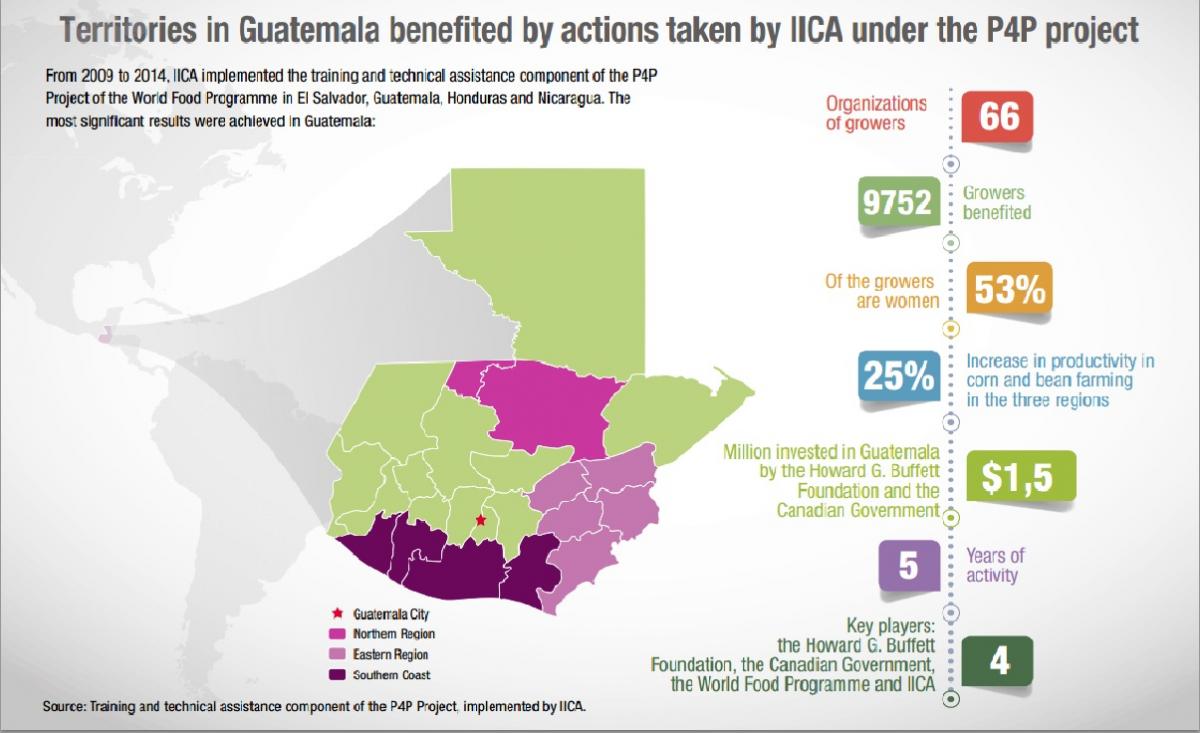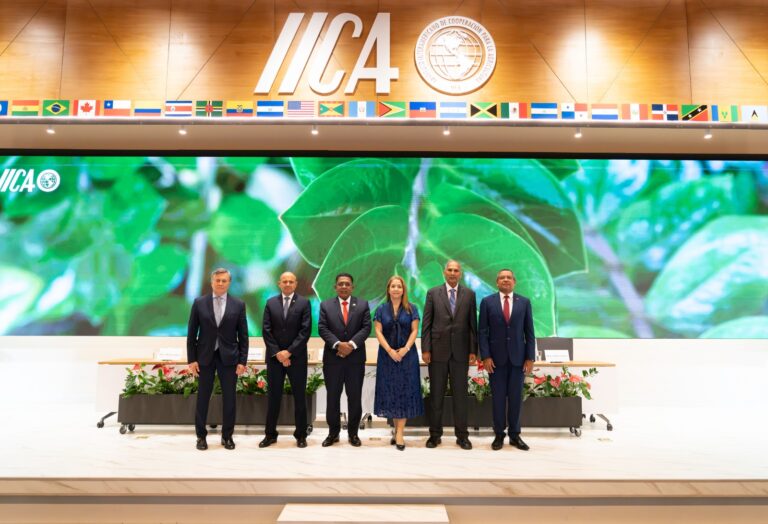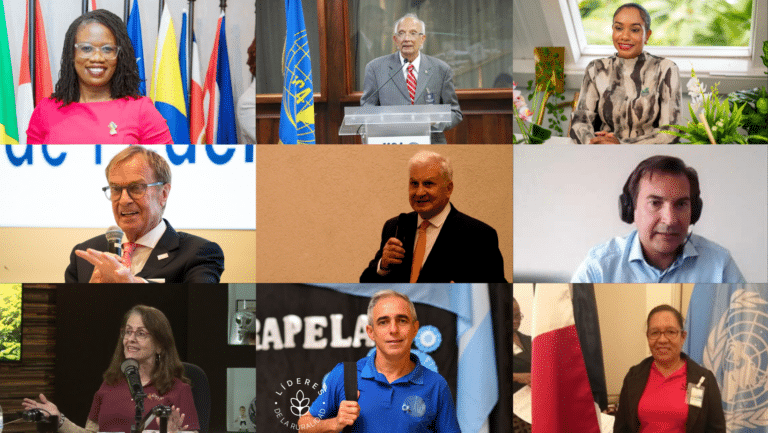An increase of 25% in productivity in three regions of the country is one of the most important results of the Purchase for Progress project, being implemented with support from IICA.

Guatemala City, March 20, 2015 (IICA). The families of some 9700 corn and bean growers in Guatemala can now more effectively place their produce on local markets and have improved their incomes thanks to an innovative project in which the Inter-American Institute for Cooperation on Agriculture (IICA) provided technical assistance and training aimed at improving production and post-harvest practices.
This initiative, known as Purchase for Progress (P4P), encourages the production of corn and beans and the use of the purchasing mechanisms offered by the World Food Programme (WFP), with a view to enabling small-scale growers, in particular those of the family agriculture sector, to more effectively access markets.
The P4P initiative is a pilot project of the WFP being implemented in 23 countries of Latin America, Asia and Africa. IICA contributed to the design of the initial phase of the project in Central America and implemented part of the technical assistance and training components in Guatemala, El Salvador, Honduras and Nicaragua.
One of the greatest success stories was reported in Guatemala: the productivity of 66 associations, whose membership includes 9700 corn and bean growers in the northern, eastern and southern coast regions of Guatemala increased, on average, by 25%.
The good agricultural practices promoted by IICA for corn and bean cultivation include the use of seeds with the potential for producing high yields, zero or minimal tillage, soil and water conservation and changing the date for planting corn in the northern region (to avoid the emergence of tar spot disease).
IICA Technology and Innovation Specialist Abelardo Viana added that they also promoted the incorporation of fertilizers in the soil, the proper use of fertilizers, integrated pest management, the “folding” of mature corn, the planting of beans under irrigated conditions in the southern region and good practices for drying and storing crops.

For Miguel Garcia, IICA Representative in the United States and Coordinator of the IICA WFP partnership, the results of, and the lessons learned from the pilot project could serve as a model for similar initiatives in Latin America and the Caribbean.
“The project proves that the existence of transparent markets can help to increase the incomes of small-scale corn and bean growers, but they must first receive the necessary training,” he stated.
The implementation of P4P in Guatemala was possible thanks to resources provided by the Howard G. Buffett Foundation and the Government of Canada.
Concrete results
According to the IICA Representative in Guatemala, Keith L. Andrews, the work of the Institute along with other partners of the P4P project led to improvements in both the quality and safety of produce, a matter of key importance when marketing products with the WFP.
Thanks to the training provided by the Institute, growers learned more about good production practices, market access, marketing and organization, which will enable them to be more competitive vis-à-vis the needs of specialized buyers.
In addition, more grain is now available for local consumption in the northern, eastern and southern coast regions of Guatemala. The participation of women in agriculture has also increased and they now account for 53% of all beneficiaries of the initiative.
The implementation of the P4P in Guatemala has been stored on nine videos (seven technical and two institutional) produced by the IICA Office there.
The videos, in Spanish, English and q’eqchi’, can be seen on YouTube and will soon be available on the AgTube platform of the Access Agriculture organization, which will make it possible to share the lessons learned in Guatemala with other countries and in other languages. Q’eqchi’ is the native language of at least one million Guatemalans.
Viana stated “These audiovisual materials go into detail on the technologies applied in the field that have the greatest potential for adoption, and the growers themselves explain what they have learned and the positive changes that have come about.”
More information:
miguel.garcia@iica.int
keith.andrews@iica.int










